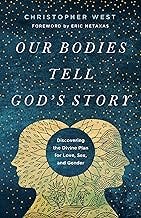We all get sloppy with language sometimes, myself included. Too often I have used the word “intimacy” as a synonym for sexual intimacy. Such misuse leads to misunderstanding, however.
Last fall, I had the privilege of teaching a group of Christian counselors on a theology of sexuality in order to guide their practice. As usual, when describing God’s incredible design for our sexuality, I pointed to the amazing way sexual bonding enables two people to become one flesh in order to meet some of the deepest longings of our hearts. After all, Eve was introduced to Adam after God stated that it was not good for him to be alone.
One fair criticism of the teaching came from the Continuing Education director. Pointing out the fact that most of the counselors were single, the presentation seemed to be making the case that unless you are married, you are stuck in loneliness and unfulfillment, void of any hope for intimacy.
Touché!
Singleness does not prevent all intimacy, nor does marriage guarantee intimacy.
As I am developing curriculum for the Tsunami Surfing Academy, I have taken a deeper dive into God’s design. Two resources have been helpful.
First of all, Christopher West’s Our Bodies Tell God’s Story: Discovering the Divine Plan for Love, Sex, and Gender has been very engaging. As you may know, West has spent his career communicating Pope John Paul II’s teaching on the Theology of the Body, making it accessible to scholars, clergy, and laity.[1]
Like many, West highlights God’s observation of solitary Adam’s sad state, but he gives a broader perspective on why it was not good. Adam’s solitude was not good because it did not fully reflect the image of God. Both male and female were needed.
Even more important, God’s intention was that both male and female, coming together in a holy covenant, would serve as a window into eternity. Through their covenantal union, God gives us a glimpse of his desire to be one with his church at the end of time. This icon from the first Garden is echoed throughout the scriptures, culminating in Revelation with the marriage supper of the Lamb. From the perspective of John Paul II, that was a key reason God labeled Adam’s status as “not good.”
But that still doesn’t answer the concern about singleness and loneliness.
Another helpful book has been Sam Allberry’s 7 Myths about Singleness. Writing as a single himself, he notes that Western culture’s understanding of intimacy and friendship is terribly impoverished. We have so sexualized the word “intimacy” that it significantly colors our perspective.
For example, when someone from a progressive perspective hears about David’s feelings for his friend Jonathan, the response evoked is, “Duh, of course! They were gay!” This, in spite of the fact that both were married with children. They simply had deep feelings of friendship forged in the heat of battle and conflict.
Recently I’ve read that the British of the 1800’s, despite keeping the stiff upper lip, would often write letters to members of the same sex with a great deal of affectionate language. It was not a glimpse of their orientation. Instead, our reaction to such language reflects how stilted and impoverished is our own understanding of friendship. There can be a meaningful intimacy among friends that has nothing to do with orientation.
A married couple at least has the potential for an intimacy that goes much deeper than that formed by close comrades. But Allberry notes that there can be a breadth to a single person’s intimacy that few married people can enjoy. The freedom to travel and to enter into a variety of social circles can provide a broader intimacy than married couples can experience, even if it is not as intense.
He also takes a closer look at 1 Cortinthians 7:7 where Paul writes about his own celibacy as a gift.
I wish that all were as I myself am. But each has a particular gift from God, one having one kind and another a different kind.
When I was a single missionary in Taiwan for one year, I became convinced that I did not have the “gift of singleness.” The stress of cross cultural living and the isolation I experienced placed me in a very vulnerable position. Not seeing another caucasian for two weeks at a time created a deep loneliness. Sexual temptation often seemed formidable.
But as Allberry makes clear, Paul was not adding to a list of spiritual gifts. He was instead stating that whether you find yourself single or married, each one’s status is to be considered a gift from God to be used as each one is led by the Spirit of God. Married or single, your situation is a gift. And so in 1982, I was gifted with singleness, enabling me to take off to that beautiful island to spread the gospel as I taught English in local churches—an experience that forever changed my life.
One friend of mine has been single her entire life. She headed up our children’s ministry at the last church I served and became one of the most selfless servants in our fellowship. I’ve never before witnessed a Sunday school teacher who so deeply influenced the lives of kids, especially ones that had come from such broken homes.
She did not view her singleness as a spiritual gift from God. She did not choose singleness and was very lonely. But she took advantage of her status to have an impact for the Kingdom.
Ever the target of matchmakers, she was so fed up with being someone’s project. She once quipped, “I hate being called an ‘unclaimed blessing’! To me, it sounds like unclaimed baggage!”
Soon I’ll share a few more of Allberry’s insights. In the mean time, what might Christians do to embrace singles more intimately within the congregation?
[1] For a good overview of the late pope’s work, see West’s Theology of the Body for Beginners: A Basic Introduction to Pope John Paul II’s Sexual Revolution.







As always, your article elicited many thoughts and memories for me. It’s interesting that so many Christian counselors are single. Does seeing the level of dysfunction out there up close cause one to shy away from intimacy? Does the counseling profession attract people who who have concerns about their own relationships? I had a psychology professor once say to our class, “Probably many of you are here because you think you might have a problem.” Regarding men and intimacy, I have read that many men are turned off to Christianity by attending worship where there are so-called “Jesus is my boyfriend “ type hymns. Modern ideas about masculinity make it hard for men to say Jesus is beautiful or that he is the “lover of my soul.” Those raised in the church understand what that means, but such language could be an impediment to evangelism. Thanks for another stimulating message.